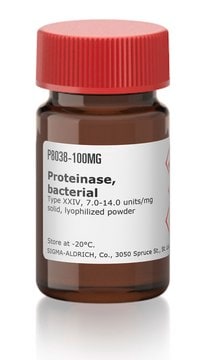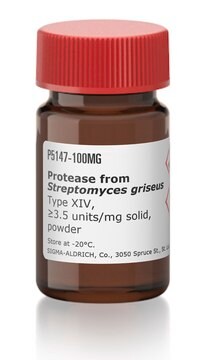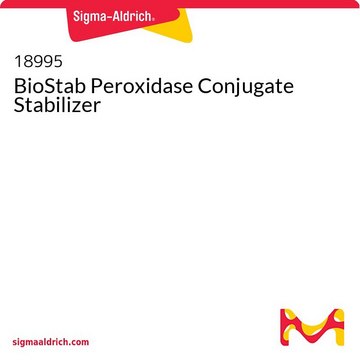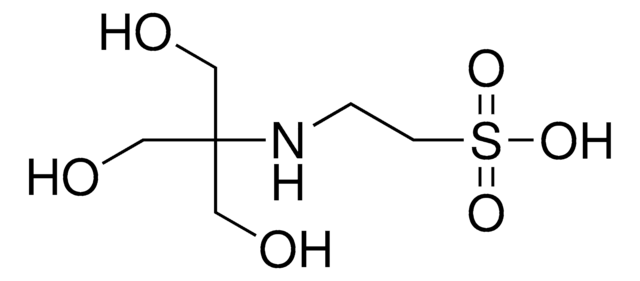S0950
StabilCoat® Immunoassay Stabilizer
Synonym(s):
Immunoassay Stabilizer, StabilCoat Reagent
Sign Into View Organizational & Contract Pricing
All Photos(1)
About This Item
UNSPSC Code:
12352202
NACRES:
NA.84
Recommended Products
General description
StabilCoat® immunoassay stabilizer effectively preserves the conformation and activity of dried proteins in immunoassays. It simultaneously blocks and stabilizes with superior results. StabilCoat immunoassay stabilizer stabilizes antibodies, antigens, or enzymes on various immunoassay platforms, such as polystyrene plates, tubes, glass, membranes, and filter paper.
Application
StabilCoat® Immunoassay stabilizer has been used to preserve:
- the immobilized antibody surface in a dried phase
- the surface plasmon resonance imaging (SPRi) gold chips containing antibodies and lectin
- in coating the antibody sensor chip to preserve it in the dry phase for antibody stabilization
Legal Information
StabilCoat is a registered trademark of SurModics, Inc.
Storage Class Code
10 - Combustible liquids
WGK
WGK 3
Flash Point(F)
Not applicable
Flash Point(C)
Not applicable
Choose from one of the most recent versions:
Already Own This Product?
Find documentation for the products that you have recently purchased in the Document Library.
Customers Also Viewed
Krisda Sudprasert et al.
The Analyst, 140(3), 880-888 (2014-12-05)
A flow-induced cell movement assay combined with a surface plasmon resonance (SPR) technique was developed to quantify the agglutination strength, derived from the standard tube-agglutination test. Red blood cells (RBCs), based on the ABO blood group system, were specifically captured
Patjaree Peungthum et al.
The Analyst, 142(9), 1471-1481 (2017-03-28)
Low antigenic expression of ABO subgroup system on red blood cell (RBC) is cause of discrepancy between forward and reverse blood typing in the standard agglutination technique. Neutralization agglutination is employed for verification of the detection of ABH substances in
Eleni Syrimi et al.
iScience, 24(11), 103215-103215 (2021-10-12)
Multisystem inflammatory syndrome in children (MIS-C) is a life-threatening disease occurring several weeks after severe acute respiratory syndrome coronavirus 2 (SARS-CoV-2) infection. Deep immune profiling showed acute MIS-C patients had highly activated neutrophils, classical monocytes and memory CD8+ T-cells, with
Our team of scientists has experience in all areas of research including Life Science, Material Science, Chemical Synthesis, Chromatography, Analytical and many others.
Contact Technical Service









